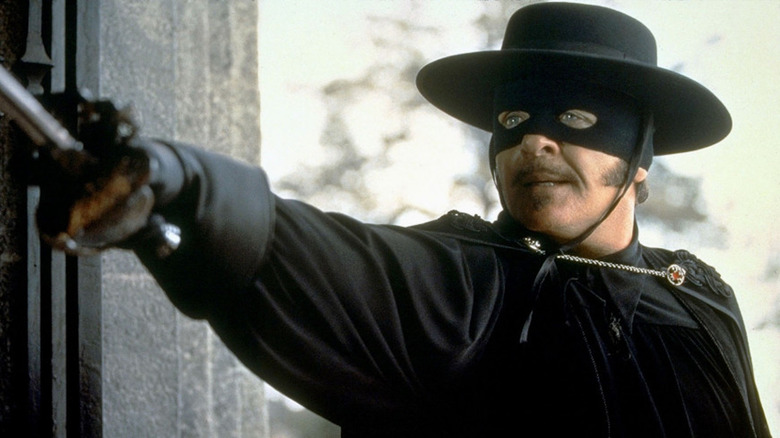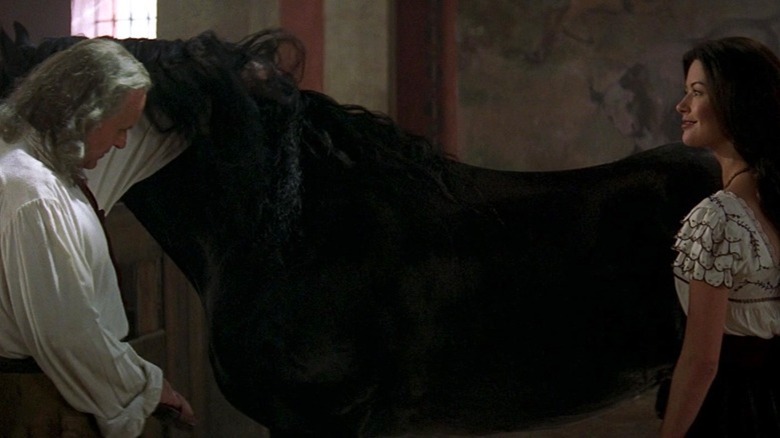One Of The Best Scenes In The Mask Of Zorro Was Anthony Hopkins' Idea
Martin Campbell's "The Mask of Zorro" is one of the most rousing adventure films of the 1990s, a bracing throwback to old-school Errol Flynn swashbucklers that dazzles with masterfully staged sword fights (coordinated by the great Bob Anderson, whose stuntman career began in 1952 when he dueled with Flynn himself in "The Master of Ballantrae"). Perhaps most importantly, it's powered by an emotionally resonant narrative that raises the stakes sky-high, leading to a breathtaking climax that had audiences cheering all three times I saw the film theatrically.
Antonio Banderas is absolute perfection as Alejandro Murrieta, a rakish outlaw who becomes the unlikely successor to Anthony Hopkins' Don Diego de la Vega, aka Zorro. Murrieta also falls for Catherine Zeta Jones' beautiful and feisty Elena Montero, who does not know that her father, the evil Don Rafael Montero, stole her as an infant from de la Vega and his wife Esperanza (Julieta Rosen).
That Elena does not know her true lineage winds up being the heartfelt counterpart to the film's rollicking action. Indeed, the scene where de la Vega reveals that he is her father, while threatening the vile Montero at swordpoint, is one of the film's most stirring dramatic moments. But de la Vega's best moment with Elena comes before he can tell her the truth. And it only exists because Hopkins insisted on it.
De la vega's heartbreaking realization that Elena is her mother's daughter
In Ben Pearson's exclusive oral history of "The Mask of Zorro" for /Film, screenwriter Terry Rossio, who shares a writing credit with his longtime writing partner Ted Elliott and John Eskow, disclosed that Hopkins stepped forward during pre-production and said, "There's a scene missing." As Rossio told Pearson:
"Hopkins pointed out there was not a scene where Diego de la Vega got to speak with his daughter Elena alone, one on one, with him not able to reveal the truth. 'It's like two ends of a triangle haven't been connected,' he said, and he was right. That led to us writing another scene in the stable, the one where the horse is groomed. Diego and Elena are able to connect as adults on an emotional level, and of course it's an absolutely necessary scene."
It's a beautifully written moment where de la Vega, posing as a nobleman, walks right up to the line of telling Elena the truth, going so far as to say she is very much like her mother. Elena, who is fond of Hopkins' nobleman, finds this an odd statement, so de la Vega deftly maintains his cover by noting that she is nothing like her father; ergo, she must be her mother's daughter. And when he learns that Montero has described Elena's mother as a "proper" woman, it hits him that he is the only person who knows the actual truth. And so he realizes his mission is not just one of revenge, but a righteous act of salvation.
His final scene with Elena and Alejandro wouldn't be nearly as effective without this moment, and that's why you hire Sir Anthony Hopkins should the opportunity arise.

